Riding the crest of a wave of success, I was confident going into the Spokane Chess Club's Winter Championship. At the start, I was the top seed.
My first round game was another White against Ron Weyland, a fellow French enthusiast. Rather than playing my normal Queen's pawn openings, I sought to demonstrate my clear superiority by inviting his French. Playing 1.e4 in rapid or blitz chess is one thing; playing such garbage with standard time controls in quite another. A friend called this choice greedy. I was completely outplayed. Through the course of the game, three times I made the decision to maintain tensions and material because I was the stronger player. Each time, his position improved and mine grew worse.
After this disaster, a late registrant joined the event. He was rated higher, so I became number two. As the highest rated zero, I was paired against the newcomer in round two (he was awarded a 1/2 point first round bye). I lost this game too. Later, he had his own setback and we finished in places 5-6 with even scores, while lower rated players won the event.
The event began in mid-January.
Stripes,J (1728) - Weyland,R (1444) [C12]
Winter Club Championship Spokane (1), 22.01.2009
1.e4 e6 2.d4
for 2.c4, see Lunacy.
2...d5 3.Nc3 Nf6 4.Bg5 Bb4
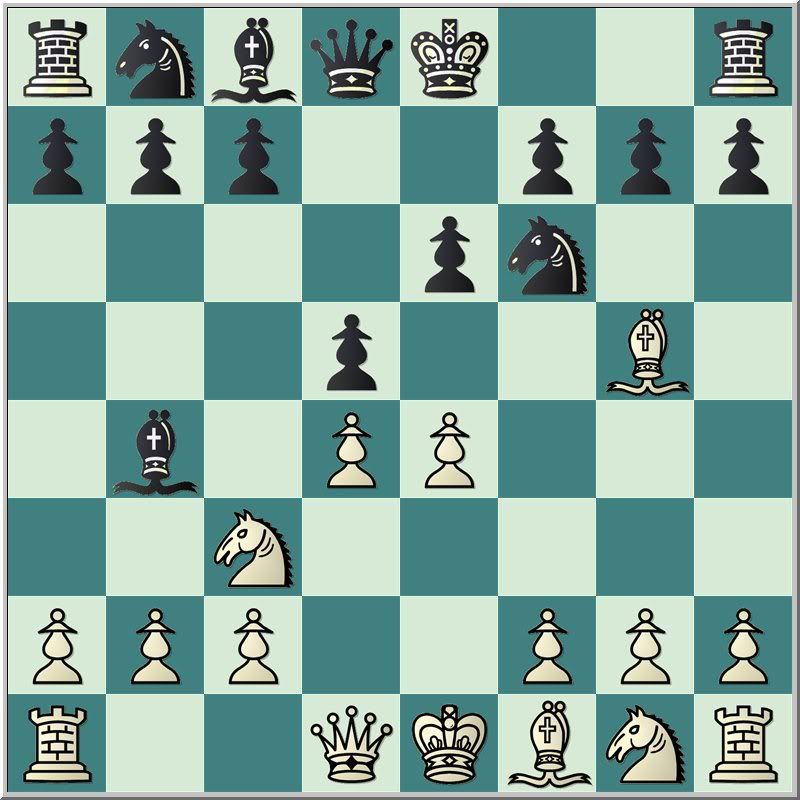
The McCutcheon French. I had a few interesting and instructive games on the Black side of this system in 2005, and so decided that I would try something that worked well against me in the 2005 Inland Empire Open.
5.e5 h6 6.Bd2
My other 2005 games continued with 6.exf6 hxg5. I did well as Black until I ran up against 6.Bd2.
6...Nfd7 7.Bd3 c5 8.Nb5
According to the computer, the second best move. More telling than post-game computer analysis: before the game, Ron and I had been talking about this very move in several variations of the French, and agreeing that we were unafraid. What is White planning? Does White intend to relieve Black of the bad French bishop?
8.Qg4 is the choice of silicon
8...Bxd2+ 9.Qxd2 0–0 10.c3 cxd4N
10...Nc6 11.Nf3 f6 12.exf6 Rxf6 13.0–0 a6 14.Na3 e5 15.Nxe5 Ndxe5 16.dxe5 Nxe5 17.Rad1 Nxd3 18.Qxd3 Be6 19.Nc4 Qc7 20.Ne3 Rd8 21.b4 cxb4 22.cxb4 d4 23.Qd2 Rd7 24.Nc2 d3 25.Ne3 Kostro,J-Bednarski,J, Wroclaw 1972 ½–½
11.cxd4 Nc6 12.Ne2
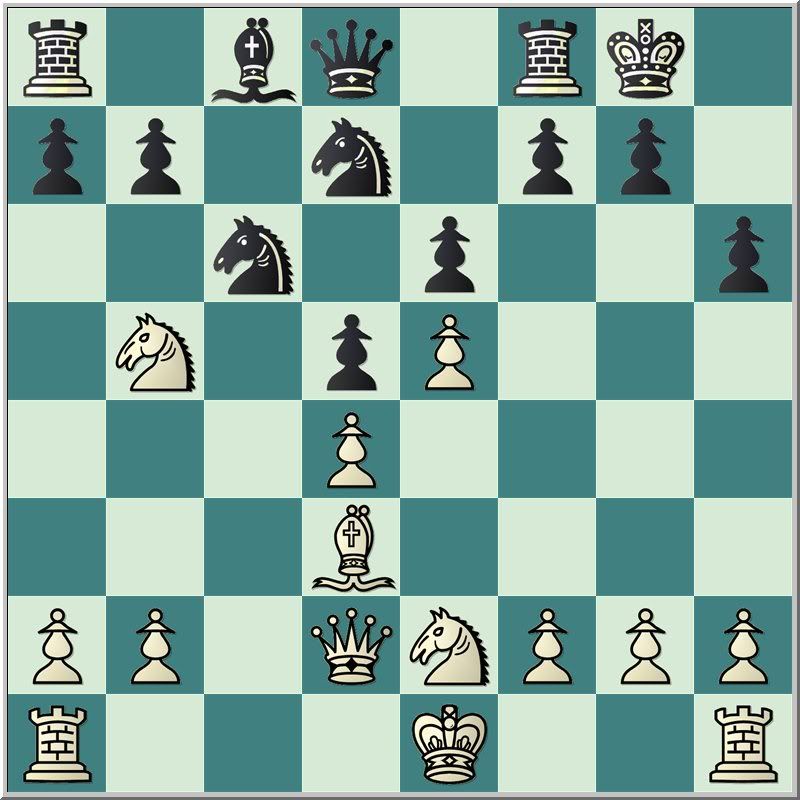
White's advantage, if any, is marginal. 8.Nb5 now seems to have been silly and senseless
12...f6 13.exf6
I didn't consider 13.Nf4
13...Qxf6 14.0–0
Obvious, but 14.f4 is more dynamic and consistent with the aggressive approach Michael Cambareri employed to beat me in 2005.
14...Qd8 15.Rac1 a6 16.Na3
A knight on the rim ...
16...e5

17.dxe5
17.Bc2 seems to have merit
17...Ndxe5 18.Bb1 Bf5

Trading bishops seems warranted, but thinking that I am the stronger player, I want to keep as much material on the board as possible. The mismatch between my self-assessment and my performance in this game produced a painful loss.
19.Nc2?! Nd3 20.Ng3??
20.Rcd1 Nxb2 21.Ne3 Nc4 22.Nxc4 Bxb1 23.Nb6 Qxb6 24.Qxd5+ Rf7 25.Rxb1 Qd8 26.Rfd1=
20...Bh7?
20...Nxc1 21.Nxf5 Rxf5 22.Rxc1–+
21.Nd4!
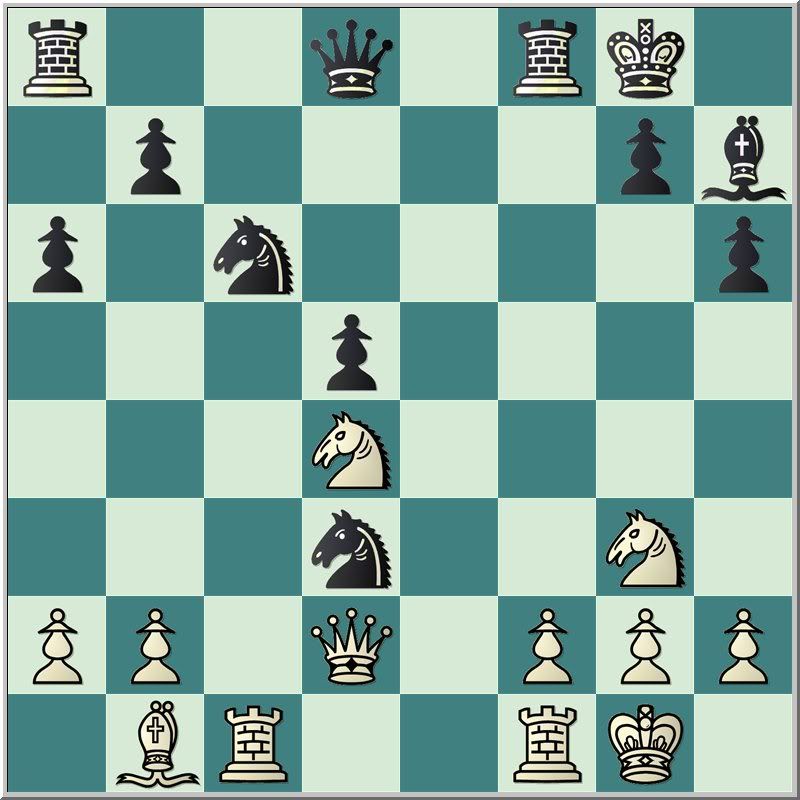
I did find a few strong moves in the course of this loss.
21... Nxc1 22.Bxh7+ Kxh7 23.Ne6 Qd6 24.Nxf8+ Rxf8 25.Rxc1=
I lost this game once, but my opponent let me back in the game.
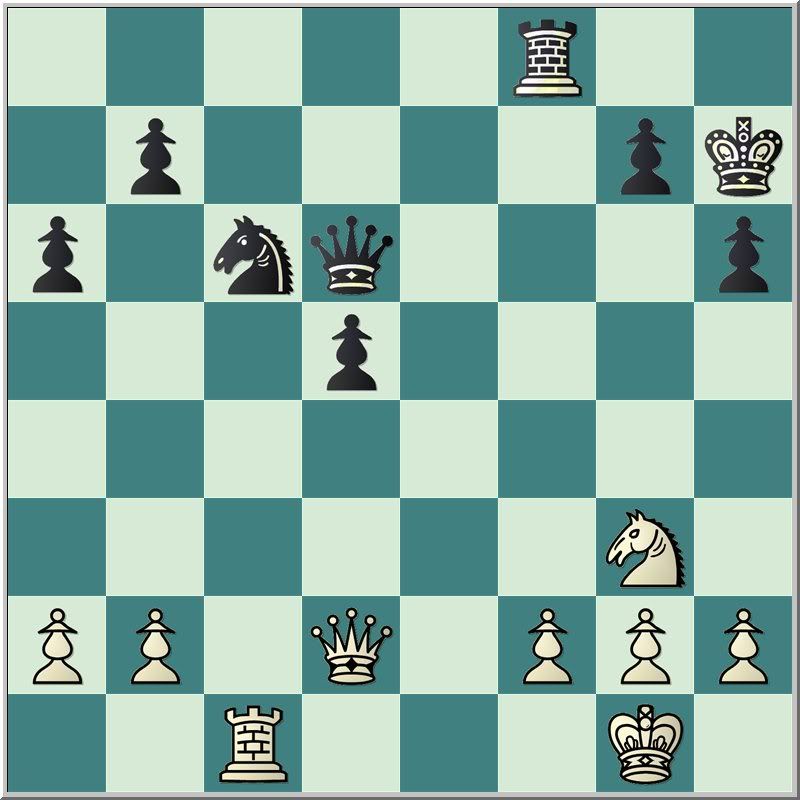
25... Qf4
If I trade queens, it will be very difficult to lose, but winning would also seem elusive. I'm the stronger player (I believe), so the material must remain (and consequently my position soon begins to deteriorate).
26.Rd1 Qe5 27.Qc2+ g6 28.Qc5 Rd8 29.b3 Kg7 30.Nf1 d4
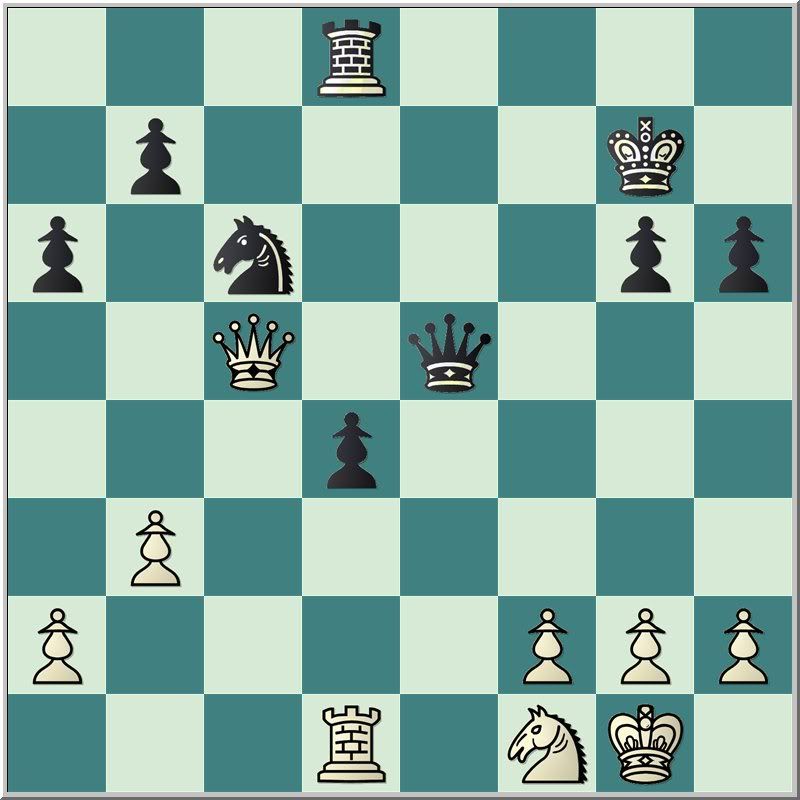
31.Qb6?
31.Qc2 is clearly stronger
31...Rd7 32.Ne3 Re7 33.Nf1 Qb5
Once again my opponent lets me back into the game. This time I have no choice.
34.Qxb5 axb5 35.Ng3 Kf6 36.Kf1 Ke5 37.Ne2 g5 38.f3 Rd7 39.Ke1 d3 40.Nc3!? b4
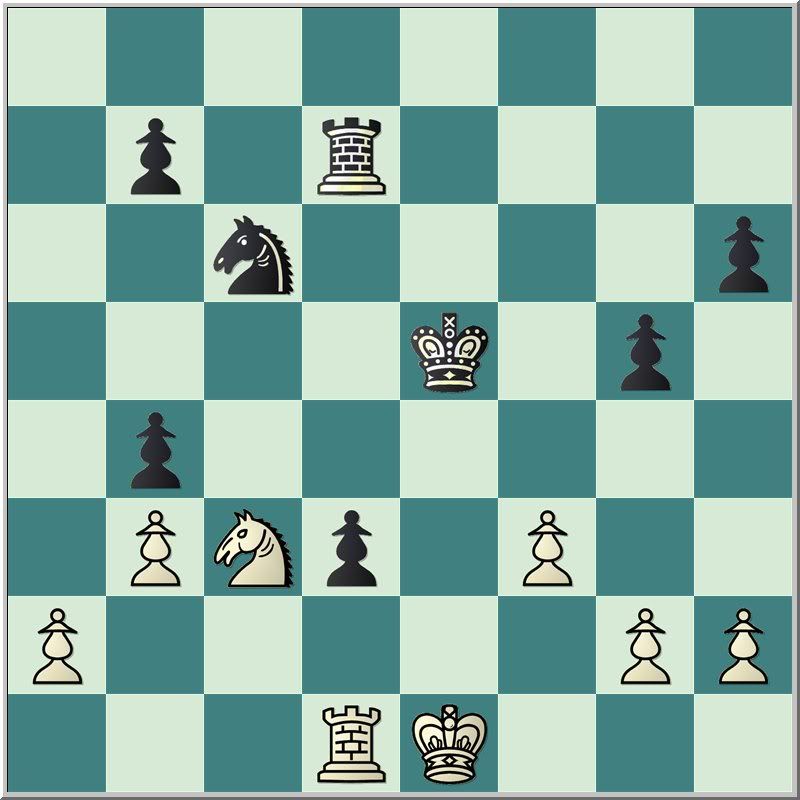
41.Ne4
41.Ne2!
41... Kd4 42.Kd2 Ne5 43.Rc1 g4??

Black gives the game away
44.Nf6?
... and the "better player" fails to capitalize.
44.Nc5!+-
44... Rd6 45.Nxg4 b5?? 46.Ne3
46.Nxe5 gives White a theoretically won rook endgame.
46... Ra6 47.Ra1 Ra8!
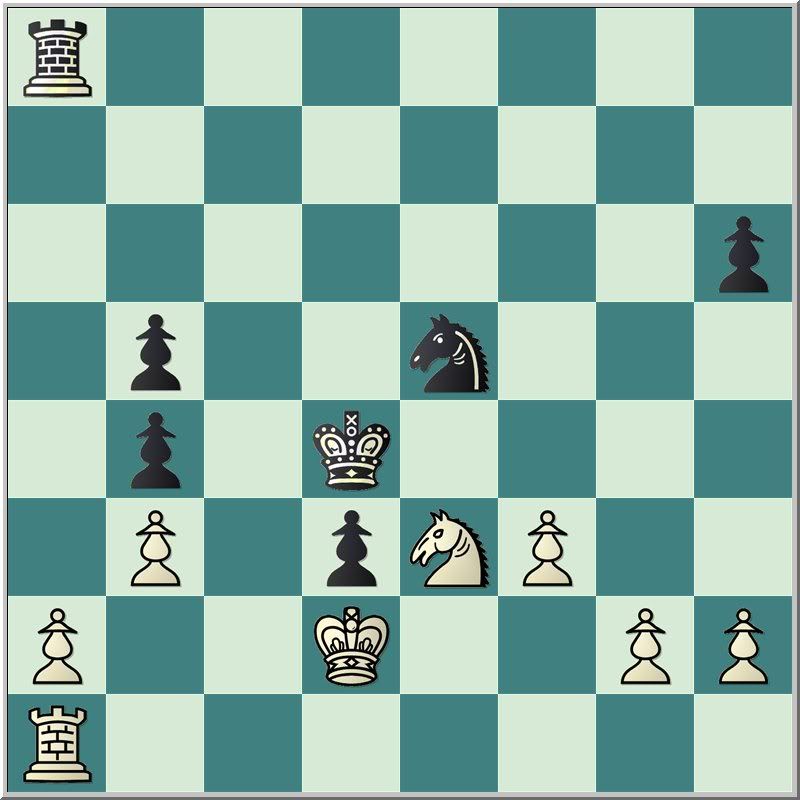
48.Nd1??
The decisive error.
48.Nf5 and White has winning chances.
48... h5?
48...Nc4+! wins
49.Nf2 Rc8 50.Ke1
50.Rc1 seems more stubborn
50... Rc2 51.Kf1 d2 52.h3 Rc1+ 0–1











48.Nf5 seems to me like the worst of your misses, after the king retreats there is no danger and you have 3 passed pawns. But generally speaking I don't like these central passed pawns, they can be dangerous (as happened). I think playing 2. c4 or playing straight one of the main French variations are maybe 2 pols, maybe the truth is the middle.
ReplyDelete